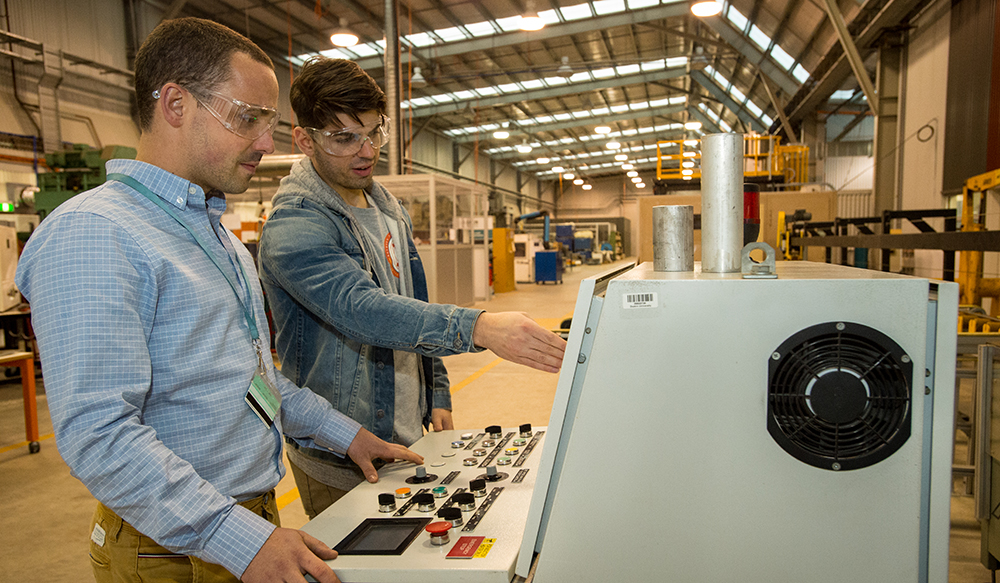Development of novel high performance aluminium alloys containing scandium
Over 30 million tonnes of high performance aluminium alloys are produced per annum. This project aims to develop a new generation of alloys that contain scandium.
Scandium is beneficial for improving the bulk properties of aluminium but a high scandium price has restricted research so far. Australia has the largest deposit of scandium in the world and the Australian mining company Clean TeQ has developed a sustainable extraction technology to capitalise on this resource. A fundamental understanding of the beneficial effects of Scandium will expedite rapid developments in these new alloys. This project also partners with an international producer of aeronautical grade aluminium, Universal Alloy Corporation, that will ensure rapid commercialisation.
Enhanced bendability of extruded Al-alloys through innovative cross sectional design
This project aims to develop and proof a new forming concept to produce large and curved beam sections from extruded aluminium (Al) for light weight structural components. The novel concept, involving the roller bending of a “smart” cross section shape for wrinkle free forming, will be developed and optimised. This is followed by the analysis of special heating treatment schedules to be applied after bending to minimise strength in-homogeneities and optimise part performance. The intended outcome of the project includes simple analytical equations for process design and optimisation and the new beam curving technology validated through extensive laboratory trials.
Towards a new industrial Sc-containing alloy for aeronautic applications
This project aims to determine the optimal Sc and Zr content and suitable thermo-mechanical processing route for extruded age-hardenable aluminium alloys. During the first part of the project, a combinatorial approach will be used to create extruded products with composition gradient. The combinatorial approach is the most efficient way for rapid alloy development as a range of compositions can be investigated from the one extruded product. The second part of the project will be focused on the optimisation of the thermo-mechanical treatment for a selected alloy composition.
This study is performed on an Al-Cu “model alloy”. This system is often used for alloy development as it exhibits precipitation hardening (like all structural alloys). This model metallic system reduces the number of variables and will thus give an efficient way to observe the effect of Sc and Zr content on texture and mechanical properties and to optimise the content of Sc and Zr in extruded high performance Al alloys.
Improving Recyclability of Cu containing Al-Alloys using Direct Strip Casting
Over 30 million tonnes of High Performance Aluminium alloys are produced each year and with only a limited number of recycling solutions, this is a major economic and environmental challenge for the future. During the recycling process the impurity content (mainly Fe) increases, which is extremely detrimental to the corrosion and mechanical properties of the recycled alloy. This project seeks to adapt direct strip casting (DSC) with twin-copper roll technology, classically used in the steel industry, to process 2xxx series aluminium alloys. The use of this process will considerably simplify the conventional processing route. Furthermore, the inherent rapid solidification characteristics of this process can be used to minimise the detrimental effects of impurities by retaining them in solid solution and by refining the intermetallics particles thus reducing their negative influence. DSC has the added advantage of being a “green” technology with significant energy savings compared to conventional processing routes.
